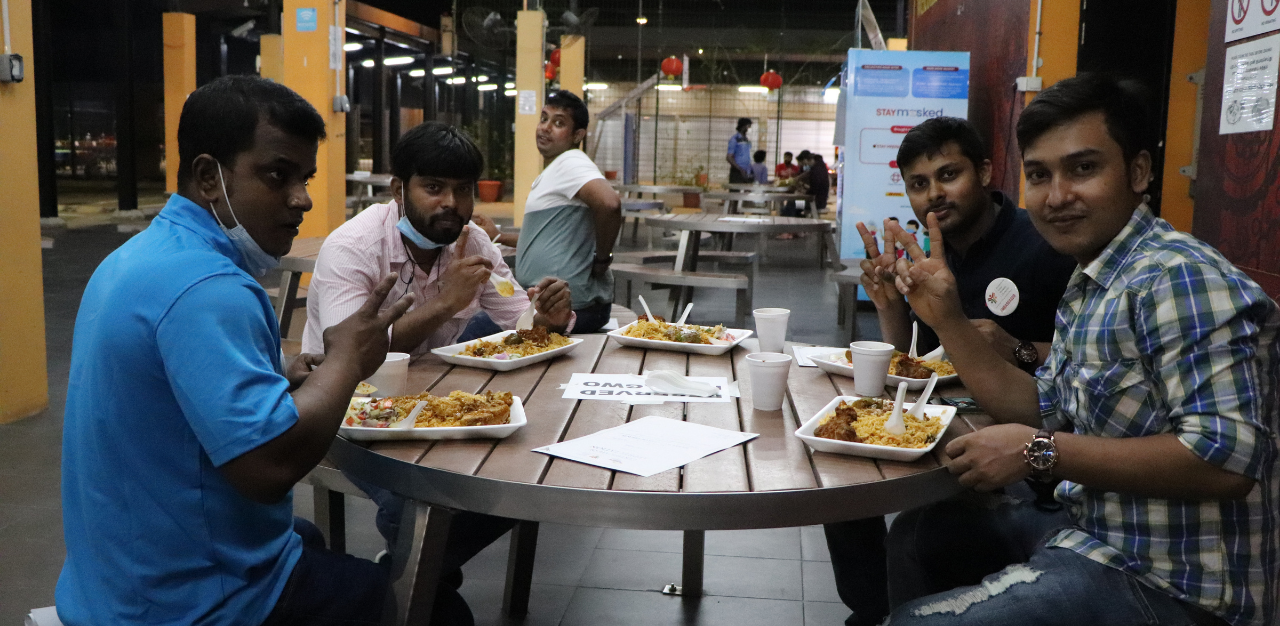Earlier this month, Singapore’s Second Minister for Manpower Dr Tan See Leng announced the launch of new regulations pertaining to migrant workers’ visits to recreation centres. This is facilitated by the Assurance, Care, and Engagement (ACE) Group under the Ministry of Manpower, which was established last year to help address the physical, mental and social needs of migrant workers.
TheHomeGround Asia reached out to migrant workers and migrant worker organisations to find out their perspectives.
Errands such as picking up groceries and getting a haircut may be everyday tasks for most people but for many migrant workers, these are luxuries. Thousands of workers from countries like Bangladesh, China and India continue to be confined to dormitories, with little chance to head out aside from going to work, or visiting the recreation centres (RCs) that have been assigned to their living quarters.
“I remember being given some donated NTUC [Fairprice] vouchers to pass on to roadside migrant workers,” shares Carmen Chow, a team leader volunteer with social initiative It’s Raining Raincoats. “Before doing so, I had to ask that rather strange question of whether they even have access to NTUC or can cross a few streets in order to make use of the vouchers.”
RCs are home to amenities such as food and beverage shops, remittance services, mini-marts and barbers. To make a visit, migrant workers must apply for an exit pass and are subject to wearing contact-tracing devices and Rostered Routine Testing (RRT).
Under new regulations announced earlier this month, migrant workers can now visit RCs up to three times a week, up from once a week. Visits have also been extended from three to four hours.
Speaking in Parliament on 3 March during the Committee of Supply 2021 debate, Dr Tan says that the Ministry of Manpower (MOM) is also working out plans to allow eligible workers to visit the community once a month. Operational details are being drawn up to keep the numbers manageable.
“We have no intention whatsoever for restrictions to be stricter than necessary, or to be in place longer than what is necessary,” he says. “We are dealing with the real risks posed by COVID-19, especially when we are trying to prevent cross-transmission or possible re-infection.”
He also appealed to the public for their “support and understanding” as MOM continues to “calibrate measures to adapt to the ever-evolving situation” and to “restore a sense of normalcy where possible.”
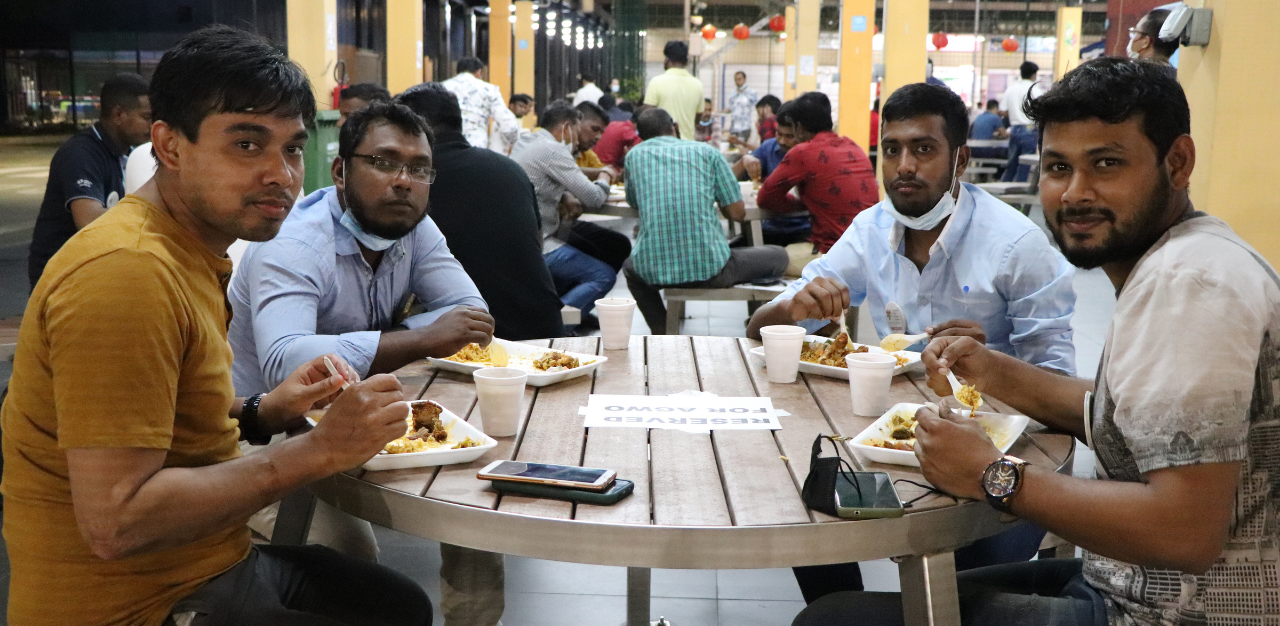
Are regulations being eased too slowly?
Says Ms Chow, “The ideal would of course be for life to go back to normal, and for workers to have unrestricted access to recreation centres and the community as and when they want.”
But she also recognises the need to remain cautious: “With everyone’s movement globally being restricted in one way or another, I guess we should try to understand that restrictions imposed and regulations in place on the use of the recreation centres is necessary to keep COVID cases under control.”
She suggests that if infection numbers remain low “perhaps it is time to relook the eligibility conditions for migrant workers to visit recreation centres.”
Debbie Fordyce, President of Transient Workers Count Too (TWC2), an NGO promoting fair treatment of migrant workers, says that recreation centres “fall far short” of the freedoms that other resident groups in Singapore are able to enjoy. She believes that “such extreme restrictions” are “difficult to justify” for foreign workers.
“Even if we consider the confinement of workers merely from the point of view of containing transmission of a virus, it is difficult to explain given that the present rate of COVID transmission among male foreign workers is close to zero,” she says.
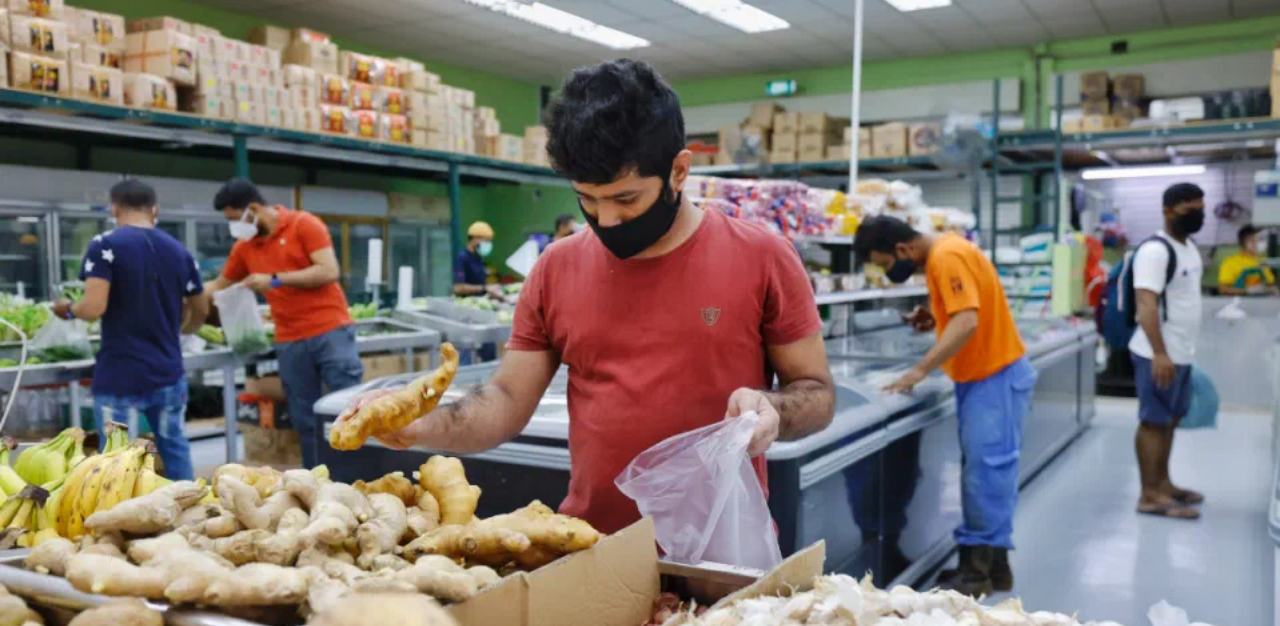
Are recreation centres enough?
Despite increased access to facilities and resources offered by RCs, Ms Chow stresses that migrant workers still have needs that have not been met. For instance, she worries about the quality and quantity of food they receive.
“For people doing manual work for hours, they should be given better food, both in terms of quality and quantity, especially when their movements are pretty much restricted,” she says.
“For men engaged in hard labour and have little else to look forward to, food provides a great deal of solace. When that food is monotonous, day in and out, it robs the worker of what could be a simple but significant source of joy.”
Dietary provisions are not the only concern. Privacy too has become a premium.
Ms Fordyce shares that many migrant workers compelled to stay within their dormitories lack the space to have private conversations with their loved ones.
She also notes that many migrant workers cannot engage in normal behaviours, such as socialising with friends who live in different dormitories. This isolation is further compounded for workers who are unable to work, due to injuries, for example. Restricted to their dormitories, Ms Fordyce is concerned about the impact of loneliness on their mental health.
“Everyone needs human contact, autonomy and choice,” she says. “Singapore’s foreign workers are already deprived of a home and a normal family life. Now they are further deprived of freedom to meet with friends and relatives from other dormitories and from the resident community.”
She adds, “In boasting about more spacious dorms and more visits to recreation centres, we have diminished their lives in ways that have come to be seen as just, necessary and inevitable.”
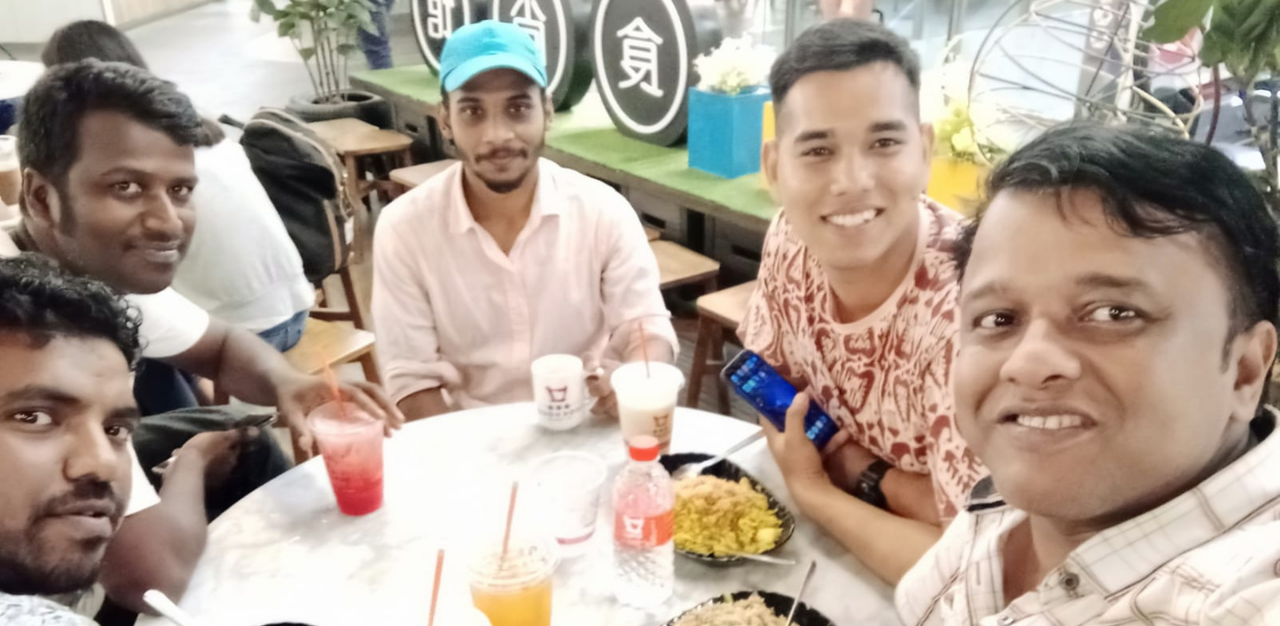
Safety coordinator MD Sharif Uddin has worked in Singapore for 12 years. He laments not being able to meet his friends and cousin who reside in different dorms, and says he still feels like a “prisoner”. Aside from the one time he was given a permit to attend an event hosted by TWC2, Sharif has not seen them in person since March 2020.
“Why now I only go (to) work and come back (to the) dorm? When I see people outside… going around… my heart also pained. Why (can’t I) go out? What is the problem?” he asks.
He recalls the last time he was out with his friends prior to last year’s lockdown.
“We were together, a few friends. [We were] very happy… We [shared] everything and we never [thought] that suddenly the situation [would change to] lockdown or COVID [would happen], so this is [a] fully different life in one year.”
Having recovered from COVID-19 last year, Sharif can apply for an exit permit to visit a designated recreation centre. But even if he wants to go, he faces one obstacle – coordinating his permit with his days off.
He explains, “My exit pass day is Monday, but Monday is my regular working day. So I cannot take off. Not only for me, I think many workers like this. This is not adjustable.
“I finish work at 7pm, I come to my room at eight o’clock. After that I have to cook. After that shower. Then around nine or 10 o’clock I am also very tired and [need to] sleep. But when I need to go to the recreation centre [on my day off on Saturday] or need to go outside, then I cannot apply.”
Addressing other needs
Reverend Samuel Gift Stephen, Lead Director of the Alliance of Guest Workers Outreach (AGWO), an initiative under Hope Initiative Alliance, says that while “guest workers are appreciative of the extended time they can visit the recreation centres”, they are “looking forward to visit their favourite food joints, as well as moving about more freely… Amenities are bare minimum and after visiting the same outlets, it can get quite routine.”
He also highlights the need for more leisure and recreational options so migrant workers can unwind, stay healthy, and in turn support their mental well-being.
“I am happy to note that at the RCs, sports and recreation are now gradually being introduced, e.g. through cricket tournaments,” says Reverend Sam. “That definitely helps.”
Since the pandemic struck early last year, AGWO has been looking out for the daily needs of migrant workers, particularly those who live in factory-converted dormitories. For instance, the charity has been providing supplies to migrant worker Rubel Bepari for the past year, who says that he has everything he needs.
Another worker, Mathiyalagan Annalakshmi Ranjithkumar, who has been volunteering with AGWO to help fellow guest workers, suggests setting up communal cooking facilities in dormitories. He says that food prepared by workers costs less and tastes better than catered meals.
Still, despite the loosening of restrictions, Sharif wishes he could visit public places besides recreation centres. He says that many workers do not understand why they are prevented from leaving their dormitories on their days off, and this has affected their mental health.
“Every time people sit down in the corridor looking at faces they’re not happy because they cannot go outside. Of course I want to be able to go outside, because I am also not happy to [only be able to] go to [the] recreation centre. I only [go to] buy something and [sometimes the things] I want to buy [are not available].”
He also misses open spaces like the park and beach: “I need to relax [with] others [in] places like this but I cannot go… People want to go [to different places] for freshness… I think [we] need to go out because we understand the law. We can maintain [follow] it. If [anyone] breaks the law, the people can be punished or can [face a] penalty. [Keeping us in] is unnecessary and… not humane.”
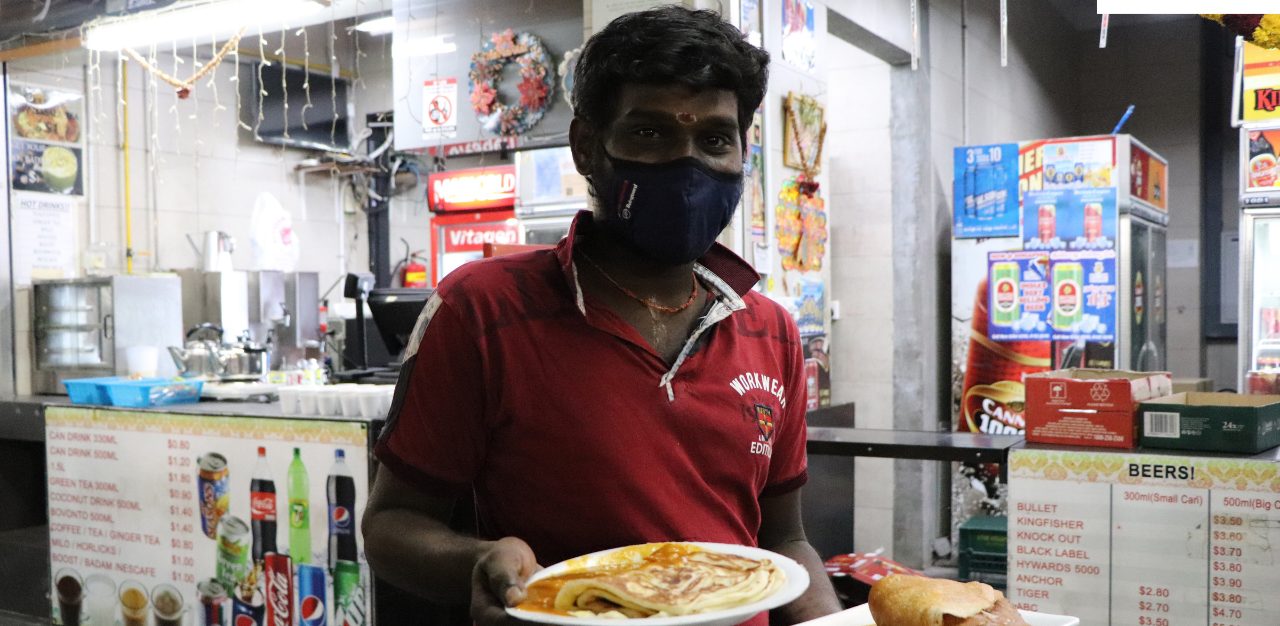
Hope for the future
For many workers like Sharif, it is faith and the thought of family and loved ones that helps them stay hopeful. That and the responsibility of being the sole breadwinner.
Says Sharif, “If I go [back to Bangladesh] I cannot [start] any business or any job. So [my] job [here is] important. I need to take care of my family.”
It is also his 11-year-old son who motivates him to keep pressing on, even though Sharif yearns to be reunited with him. He says that in the 12 years he has been in Singapore, he has only spent about seven months with his son in total.
“Every day… I dream [of living] together [with my family]. My son always says come back, we don’t need much money. I say, ‘You cannot stop studying.’ I hope he [is a] good student and [has a] good life. [This means] I need to support him.
He adds, “I’ve changed companies four times and paid the agents’ fees four times. That’s why I can’t save enough money. If I stay here and continue [to] work [for] my company then [maybe] company can also support me to improve [my skills] then maybe salary also increases.”
Join the conversations on THG’s Facebook and Instagram, and get the latest updates via Telegram.
